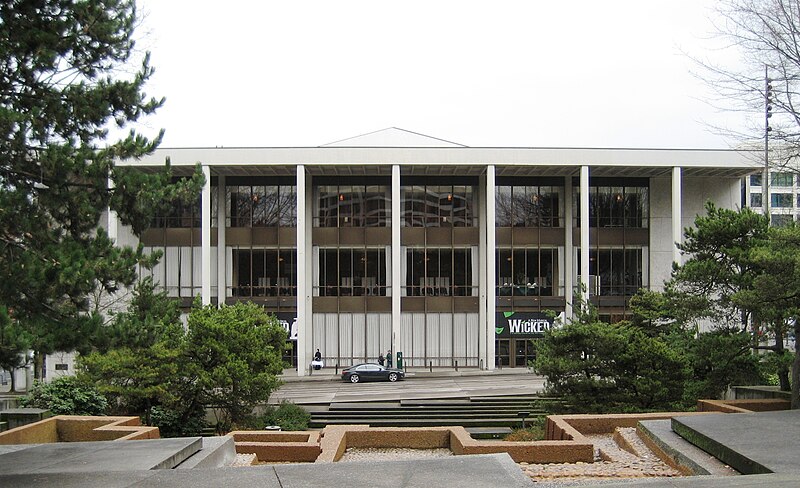Unexpected disasters of every type are extremely costly. It might be surprising to realize that earthquakes in the U.S. cost about $15 billion annually in economic losses. While earthquakes are less common, there have been 28 earthquakes reaching a magnitude of 6 or greater in the past decade.
Most of the risk is concentrated on the country’s West Coast, but other states – including Tennessee, Missouri, Kentucky, Illinois and Arkansas – are all vulnerable to earthquake risk. Efforts to mitigate the risk of floods, storms, wildfires and earthquakes before they happen are not only crucial but also very cost-effective, with federal funding support to back projects with this objective. FEMA’s Disaster Relief Fund provides funding assistance for the aftermath of disasters. In the 2024 budget, Congress allocated $20 billion for disaster cleanup and repair. Still, based on the average needs of annual disaster relief over the last 10 years, budget analysts say another $16 billion will likely be required this fiscal year.
Mitigation projects of all types are in the planning stages as government officials try to ward off some of the anticipated wreckage that is projected to occur this year.
The California Department of Transportation has announced plans to replace a pair of northbound and southbound bridges in Stockton. The $900 million bridge project will replace structurally deficient structures over the Stockton Channel. The existing bridges are thought to have been damaged by seismic activity. New bridges will be constructed to meet current design standards, including bridge rail reinforcement and broader shoulders to accommodate disabled vehicles and law enforcement personnel. The existing deck will be replaced, and all superstructure elements will be strengthened. The bridge piers in navigational waters will be fitted with fender systems, and a new standalone offramp will be constructed. When complete, the bridges will be rated to accommodate commercial transportation and meet all modern seismic safety standards. The project is in the final planning and design phases. Construction is scheduled to begin in late 2026.
The Union Station Federal Courthouse in Tacoma, Washington, will undergo extensive renovation to modernize the 106-year-old building to meet seismic safety standards. This $79 million project will involve improving the facility’s building systems, new equipment, seismic structural bracings and security system enhancement. The roof will be inspected before repair work begins to determine potential additional work. Currently in the planning phase, this initiative will likely have a construction launch early in 2025.
City leaders in Portland, Oregon, will choose a contracting firm to renovate or replace the Keller Auditorium in 2024. A 2020 study revealed that the historic 107-year-old building could collapse if an earthquake occurred. The project carries an estimated cost between $236 million and $290 million. Components of the effort will include the construction of a grand fountain plaza, a 3,000-seat main theater and the addition of a new, smaller performance space. Seismic reinforcements will be included for all structures.
If the city council chooses to renovate rather than construct a new facility, construction could begin in 2027. Two other replacement options are being discussed. One plan would be to replace the auditorium with a larger performing arts center on the Portland State University (PSU) campus. The replacement would cost approximately $447 million and include a 3,000-seat theater, a 1,200-seat auditorium, an educational building and a hotel. The university would fund the smaller auditorium, hotel and educational building. The alternative replacement plan would be to move the theater to the Lloyd Center mall. The mall would be demolished and replaced with a theater, housing, office space, restaurants and retail. In this plan, the replacement theater would cost approximately $429 million. Over the next few months, city staff will engage with stakeholders and the public to make final decisions. A decision regarding which option to pursue is expected from the city council in August.
Officials of Lee County in Florida will oversee an effort to rebuild the Fort Myers Beach Pier after it was destroyed by Hurricane Ian in 2022. The $17.1 million project will re-create the pier at its former location but extend and upgrade it to ensure it can withstand future storms. When the work is completed, the pier will be 1,000 feet long and 12 feet wide, making it approximately twice as large as the original structure. The new design will preserve the historical integrity of the former pier, which was built in 1930. FEMA disaster reimbursement funds and Lee County, tourism tax reserves, will fund it. At the conclusion of design work, solicitations for construction services will be issued – most likely in late 2025.
The town of Exeter, New Jersey, will soon have a new fire substation and police facility at a cost of about $17.5 million. The project will increase the effectiveness of emergency responses by adding a new deployment point for fire, medical and police responders. The fire department will occupy the main facility and the new substation when the project is complete. National response standards call for a 4-minute fire or medical emergency. Currently, that is not possible with current facilities. The fire substation is expected to increase the portion of responses that meet the 4-minute standard from 78% to 95%. A construction launch is planned for 2025. The building will be constructed according to net-zero principles, meaning it produces as much energy as it consumes.
These types of projects, with their potential to save lives and protect communities, are similar to hundreds of others that will launch soon. Most states, cities and counties have some type of mitigation project scheduled, and disaster mitigation projects are also scheduled on college and university campuses. Private sector contractors are already in high demand.
Photo by M.O. Stevens














